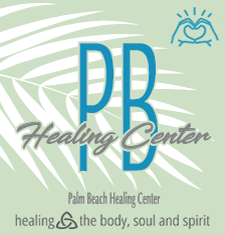Visceral Manipulation
Where Inner Harmony Shapes Outer Health
Gentle Manual Therapy to Free Internal Restrictions and Restore Balance
At Palm Beach Healing Center, we offer Visceral Manipulation Therapy, a gentle, hands-on approach that releases restrictions in the body’s internal organs (viscera) and their surrounding connective tissues. Developed by renowned French osteopath Jean-Pierre Barral, this advanced manual therapy improves organ mobility, reduces pain, and promotes overall vitality.
Whether you’re recovering from surgery, managing chronic pain, or experiencing digestive or pelvic discomfort, visceral manipulation supports deep, lasting healing by addressing the root of dysfunction—not just the symptoms.
What is Visceral Manipulation?
Visceral Manipulation (VM) is a specialized technique that focuses on the mobility and function of internal organs and their relationship to surrounding structures like muscles, fascia, nerves, and bones.
Using gentle, precisely targeted touch, your therapist identifies areas of tension, adhesions, or restriction that may be disrupting organ function or creating pain patterns elsewhere in the body. By encouraging healthy movement and alignment of the organs, VM enhances the body’s ability
to regulate and heal itself.
Benefits of Visceral Manipulation
Visceral Manipulation can provide meaningful relief and functional improvement for a wide range of conditions, including:
This therapy is deeply holistic—your organs don’t exist in isolation. When their movement is restricted, it can affect everything from your posture to your nervous system to your emotions.
Conditions Visceral Manipulation Can Help With
By restoring natural movement and balance within the body’s core, it can help address a wide range of conditions, including:
This subtle yet powerful approach supports the body’s natural healing processes, promoting greater comfort, improved function, and overall well-being.
What to Expect in a Visceral Manipulation Session
A typical session involves light, hands-on assessment and treatment, with a focus on the abdomen, chest, pelvis, or neck, depending on your concerns. The touch is gentle but precise—many clients describe it as subtle yet powerful.
You may remain fully clothed or wear loose-fitting attire during treatment. Sessions are often deeply relaxing, and improvements may continue to unfold for hours or days afterward. Your therapist will develop a plan based on your unique history, symptoms, and goals—whether you’re seeking relief from specific symptoms or looking to improve your overall health and mobility.
Why Choose PBHC for Visceral Manipulation?
At Palm Beach Healing Center, our certified therapists have advanced training in Barral Institute techniques and combine clinical expertise with intuitive, compassionate care. We work collaboratively with clients to address not only musculoskeletal issues, but also internal imbalances that affect long-term wellness.



